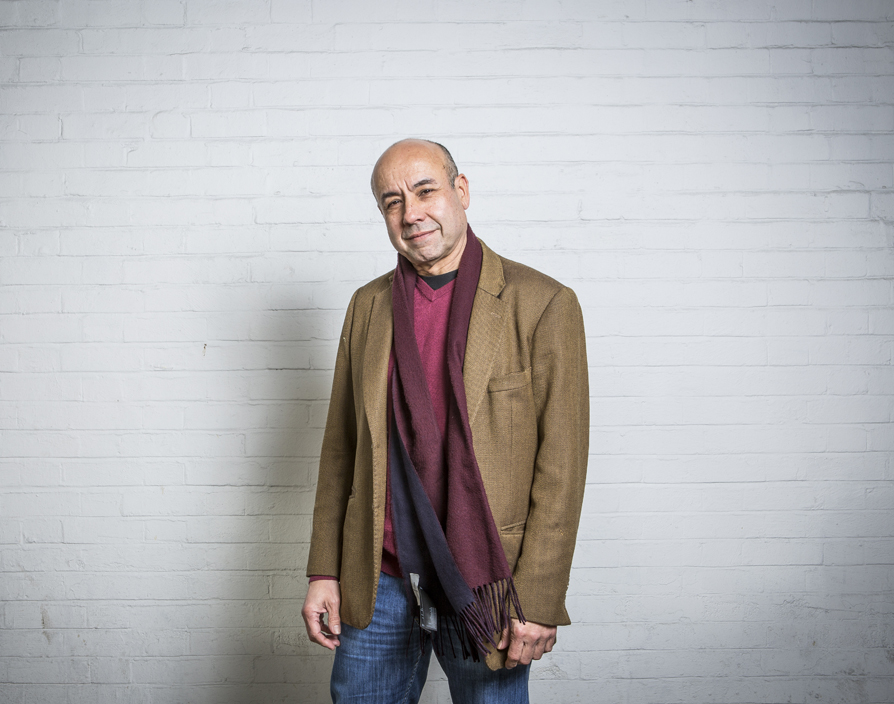Few will be shocked to hear that Hugh Man, franchise founder at CeX, the second-hand entertainment franchise, isn’t a huge fan of our throwaway culture. “We’ve got to change this disposable world that we live in,” he says. “We’ve got to stop just throwing stuff out.” While some people seem to buy a new smartphone more often than they buy new socks, Man evidently doesn’t feel this is an irreversible trend. In fact, he has made his livelihood encouraging consumers to unlock the value of their electronics and allow others to access tech at a fraction of the price. “What’s no good to you is perfect for somebody else,” he says. “And that gives us a big market in terms of what we do with this stuff.”
However, when Man was a boy growing up in Fulham these grand plans couldn’t have been further from his mind, although he had plenty of chances to rub shoulders with successful people. His father ran a Chinese restaurant around the corner from Stamford Bridge, the home of Chelsea Football Club. “Obviously I was a Chelsea supporter as a kid,” he says. “The squad used to come to my dad’s restaurant if they lost at home: that was the highlight of my week.” Despite this example, Man admits becoming an entrepreneur wasn’t exactly high on his agenda – although he certainly wasn’t beyond the occasional money-making scheme. “At 12 or 13, I bred rabbits and sold them to pet shops for pocket money,” he recalls. “But at that age I probably didn’t know what entrepreneurialism even meant.”
Instead much of Man’s energy was invested in trying to make up ground academically. “Due to a childhood illness, I missed a lot of primary school, virtually all of it,” he says. “I didn’t know my alphabet until I was like 11 or 12.” Gaining significantly on his peers during his teenage years, Man found he had a real flair for design and began to aim for a career as an architect or civil engineer. However, his focus on more technical disciplines at A-level ended up proving problematic: finding he had too few qualifications in academic subjects to enter a bachelor’s course at university, he opted instead to enter a higher national diploma (HND) programme. “Our managing director Dave Mullins often reminds me that HND stands for ‘have no degree’,” he laughs. “But it allowed me to skip the first year at uni, so I went into the second year doing civil engineering.”
After completing his second year at South Bank University, Man decided to take a short break to earn some money selling mortgages and insurance – although this brief interval quickly became a longer one. “Basically I made a bit of dosh and thought ‘hang on, I’ll take a gap year then go back to uni with a bit of money and do it in style’,” he says. “I never went back.” And as things transpired this was rather fortuitous: it was while Man was working in the industry that he first met his future CeX co-founder Robert Dudani. “Bobby was a newbie so we kind of clicked: I showed him the ropes and we spent a lot of time together, mostly in pubs,” he says. “And after we left the mortgage broker, we actually became very good friends – or more like brothers: we supported each other quite a lot through highs and lows.”
Not long after leaving the mortgage broker, Dudani began working at a second-hand retailer. And not only did this introduce him to another future CeX co-founder, Paul Farrington, but it also gave the friends direct insight into some of the industry’s worst practices. “They treated people who were selling things very badly: they would scratch their heads, give them peanuts for their stuff and then sell it for a massive margin,” says Man. “That was typical in the second-hand retail business at the time.” Recognising that this wasn’t offering customers a great experience, the co-founders began to discuss the idea of setting up a second-hand entertainment store that offered the public better payouts for their possessions. “We had the vision that we could do a lot better by treating both the buyer and seller equally,” Man says. “And that’s how CeX evolved.”
Once they had added the customer-service expertise of Oliver Ball to their team, CeX’s co-founders pooled their resources and got to work – although Man admits they were hardly blessed with a great bounty. “We had about £4,000, which is not a lot of money, and a bunch of stuff from our houses: all our Nintendos, Commodore 64s, bits of printers and video games,” he laughs. While many of the consumer electronics stores were concentrated around Tottenham Court Road, the CeX co-founders knew their budget wouldn’t stretch to that so they instead found a backstreet location near neighbouring Warren Street station. Fortunately, being such good friends meant that getting their first location open wasn’t too onerous. “In a small store, you’re like a little family,” says Man. “We took it seriously and knew what we needed to do but we probably had more fun than we should have done.”
Despite this, attracting customers to the new brand and drawing in sufficient footfall wasn’t exactly straightforward. Fortunately the CeX co-founders had a little help from their young sales assistant who showed a keen wit and remarkable prescience. “He was this wannabe cartoonist who sat behind the counter, made people laugh and produced this really cool, funny cartoon on an A5 flier to promote what we did,” says Man. “You’ll recognise his name: Charlie Brooker.” While this was many years before Brooker’s success as a writer, producer and creator of anthology sci-fi series Black Mirror, he still clearly knew how to capture the public’s imagination and soon CeX’s first store was filled with consumers looking to buy and sell electronics. “From having nothing, we started to have the latest stuff because we were giving customers fair values for their possessions,” Man says. “And for the next year or two, every penny went back into things like stock and marketing.”
And by reinvesting its revenue in this way, CeX soon had more than enough resources to open up a second location, setting in motion a trend of organic growth that continues to this day. “We saved up, trained up managers and opened another store, then saved, trained managers and opened another one and so on,” says Man. “That was it: we just kept going.” Once the business had built up a significant presence inside the capital, the entrepreneurs decided the time was right to open their first store out of the city and launched their new location – in Harrow. “Don’t laugh: as far as we were concerned at the time that was outside of London,” Man interjects. And before long the entrepreneurs were preparing to properly fly the nest and wing their way up the M40. “We left some trustworthy guys behind and myself, Bobby and Paul all piled off to Birmingham to open a store,” says Man. “And from there we just kept opening stores and building stock.”
CeX wasn’t content with just extending its reach in the physical realm however. Despite the fact that in 2000 e-commerce was still in its infancy, the second-hand retailer was eager to stake its claim in the wild frontier of the web. “We always felt you should dream about what the future will look like, aim for it and make it happen,” Man says. “Technology was advancing and we believed this was going to be a new revolution.” Growing its digital presence from a glorified mail-order system to a fully functioning online retail platform took some work though. For some years CeX’s model relied on holding separate stock for its website at a central warehouse, something that ultimately resulted in stock being siloed between its online and retail arms. “We changed it so we don’t have any central stock and the fulfilment is done via the stores,” he says. “They just go to the website and the customer has access to our entire database, which gives them a great selection.”

Josh Russell
When he isn't tooling around on trains in a tux like the Daniel Craig of the Greater Anglia transport system, Russell spends his time living the glamourous life of an enterprise journalist, judging Digital Business of the Year at the National Business Awards and attending conferences like NixonMcInnes' Meaning 2013. However, like all good secret agents, Russell lives a double life - in his case, as a closet revolutionary. Social enterprise, sustainable business and collaborative practices are his true passions, something that he has had plenty of opportunity to air in his features here at Elite Franchise.

Josh Russell
When he isn't tooling around on trains in a tux like the Daniel Craig of the Greater Anglia transport system, Russell spends his time living the glamourous life of an enterprise journalist, judging Digital Business of the Year at the National Business Awards and attending conferences like NixonMcInnes' Meaning 2013. However, like all good secret agents, Russell lives a double life - in his case, as a closet revolutionary. Social enterprise, sustainable business and collaborative practices are his true passions, something that he has had plenty of opportunity to air in his features here at Elite Franchise.


































